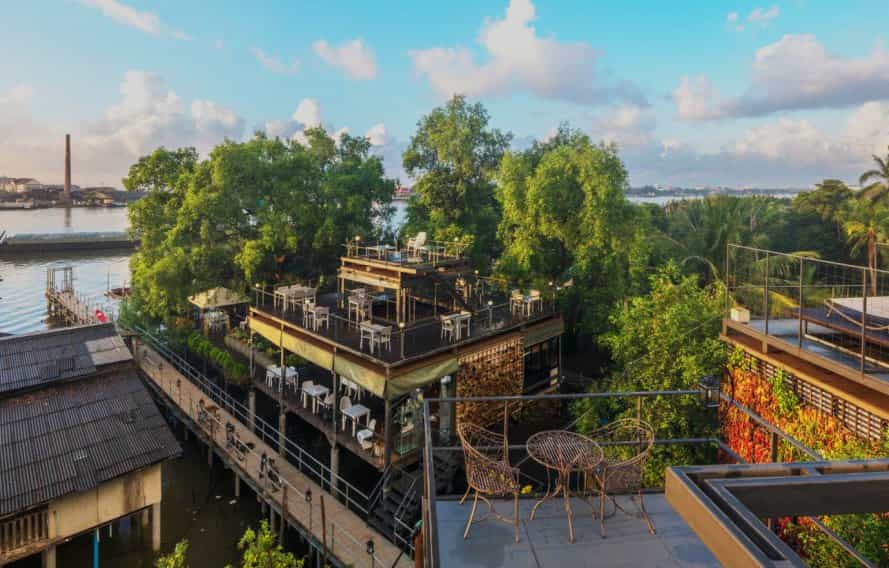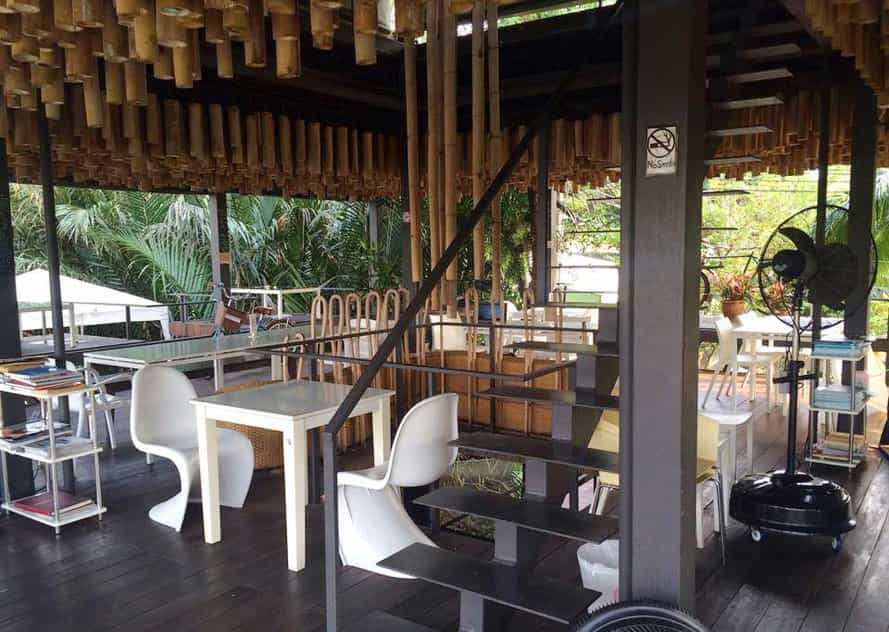Today V.A.N Design introduce a number of outstanding and eco-friendly materials solutions to the resort design.
Naked Gallery — Ecological Creation Technology
Xiaohui Designer Studio
The four pavilions of the Naked Gallery resort in China were built using a combination of locally available natural and recycled waste materials. Xiaohui Designer Studio designed the complex as an eco-friendly space that “includes 75% of sustainable and renewable materials, 75% recyclable materials, and 75% of work by local craftsmen.”
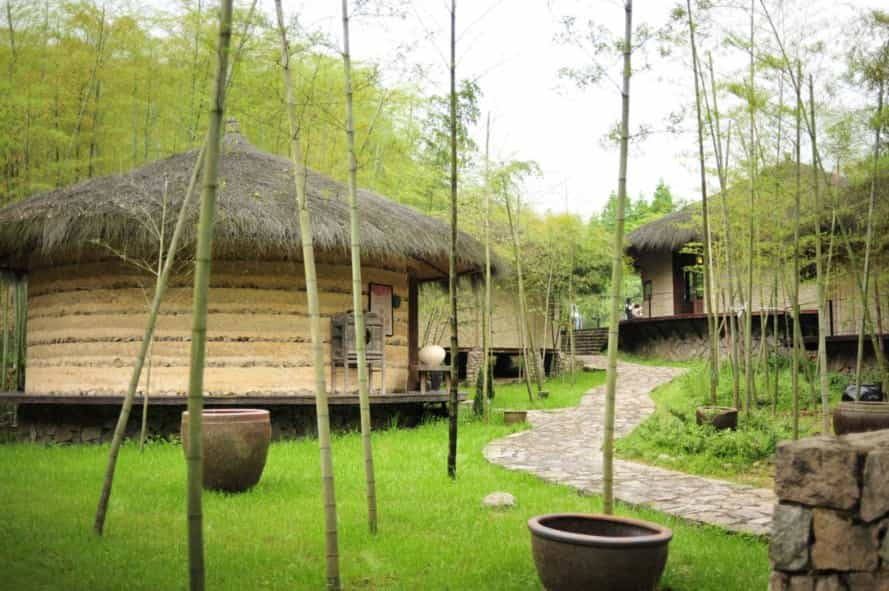
The designers utilized locally available stones, the soil excavated from the other sites in the resort, and bamboos abundant at the foot of Mount Mogan where the resort is located. The materials of the formwork and the joists of Naked Gallery are collected from the waste materials from other structures, which helped reduce the generation of waste and alleviate the influence of the architecture on the natural environment.
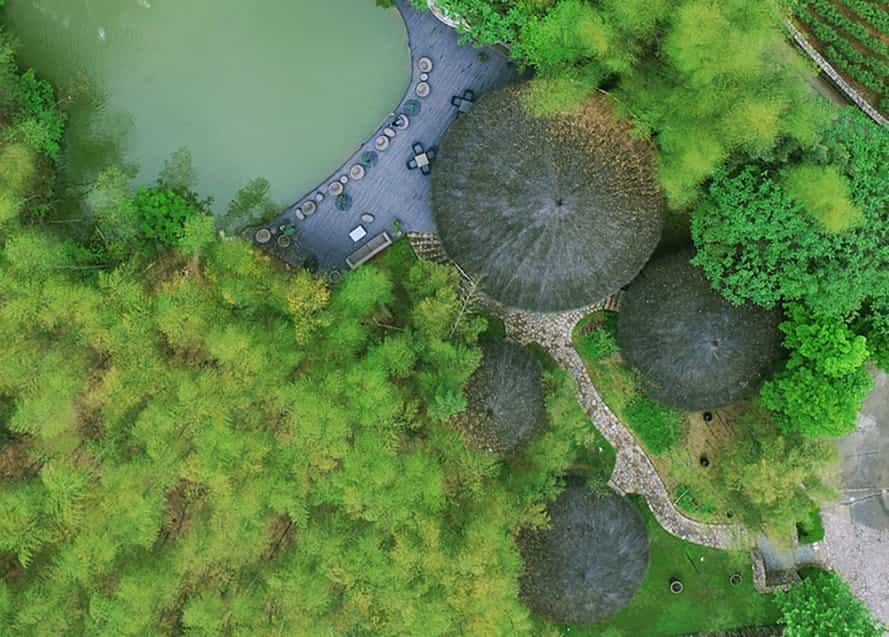
The resort consists of four pavilions. Local craftsmen built the complex using traditional building techniques which helped cut construction costs and increase construction efficiency. In fact, the transportation fees and construction waste were both cut by 90% during the building process.
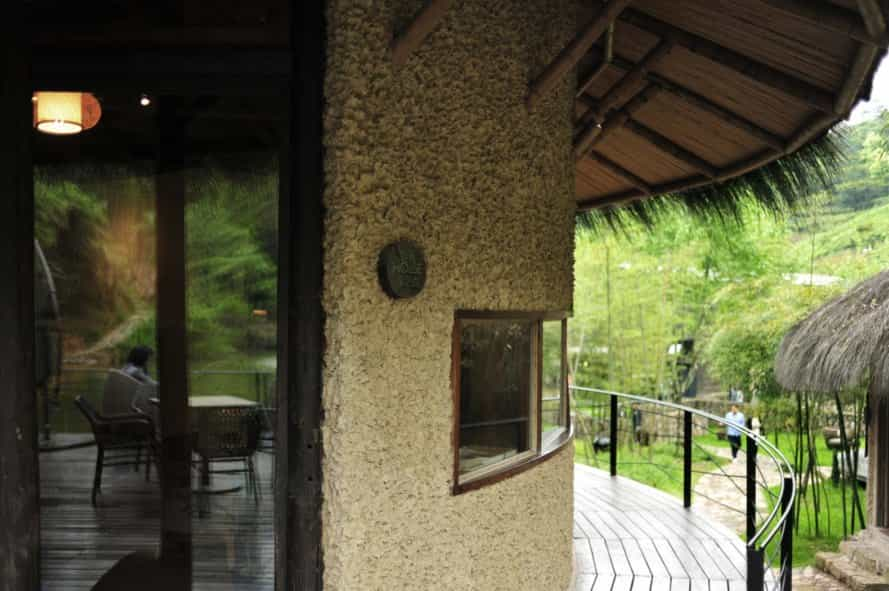
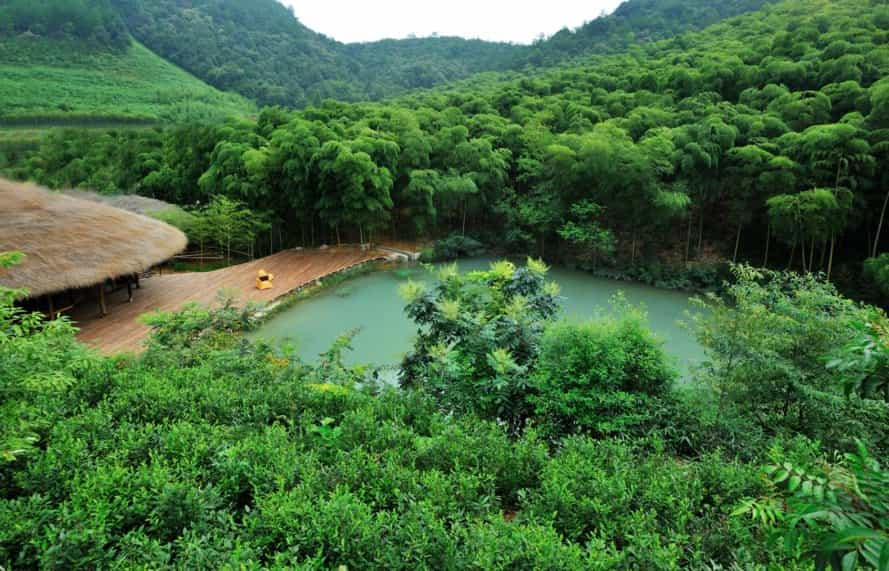
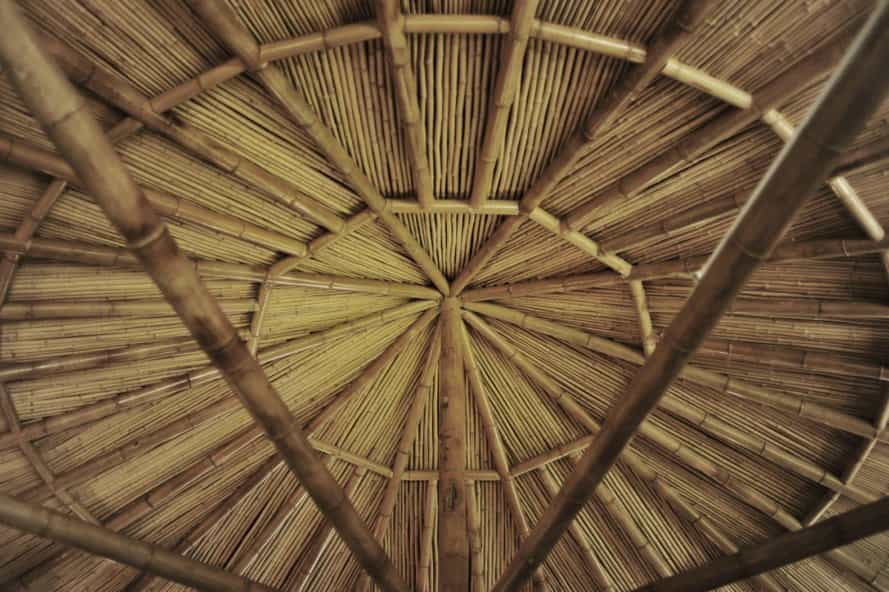
Himalayan Village:
A Charming Mountain Resort Made of Local Materials in Northern India
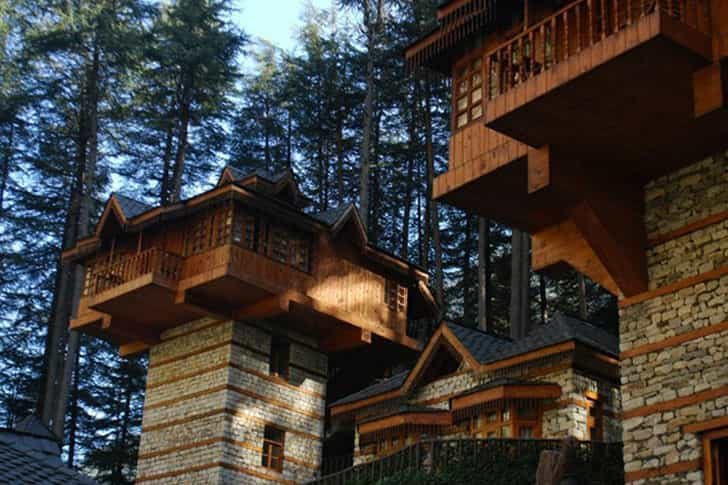
Looking to retreat to the mountains of Northern India? You could certainly do much worse than The Himalayan Village, a charming eco resort in Kasol that showcases the traditional architecture, culture and food of the Pahari people. The unique guest cottages are made using traditional Kathkunia building techniques, which involve stacking dry stones and wood without any cement. Some of the more striking cottages stand on tall stone-and-wood pedestals, towering several stories above ground.
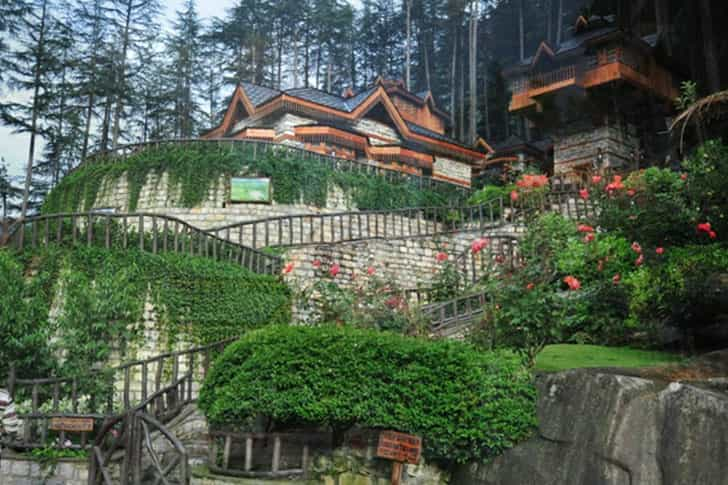
The Himalayan Village is located in northern India’s Parvati Valley, which has become a destination for backpackers, rock climbers and nature lovers in recent years because of the area’s pristine natural beauty. The resort, which is situated on the banks of the Parvati River, is surrounded by a thick forest of deodar pine trees, and the cottages look out on distant snow-capped mountains.
The interiors of the 600 to 750-square-foot cottages are decorated with handcrafted wood furniture, handmade tussle silk curtains, and traditional brass fittings. The walls are plastered with dark brown mud (it looks nicer than it sounds). The resort also includes spa services, a traditional bar, and multiple on-site restaurants that serve a variety of Indian, Himachali and continental cuisines.
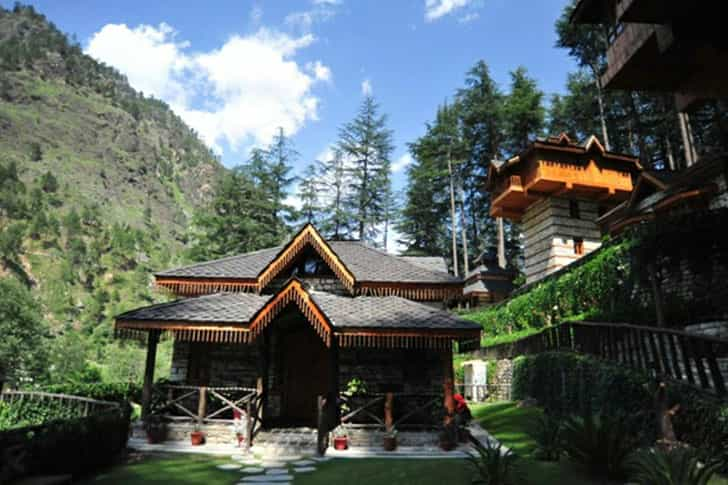
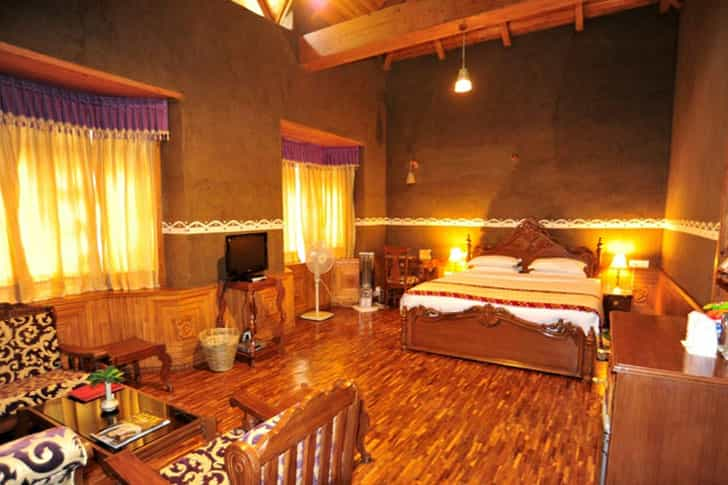
Exotic solar and wind-powered Bangkok Tree House resort
A masterpiece of sustainable design
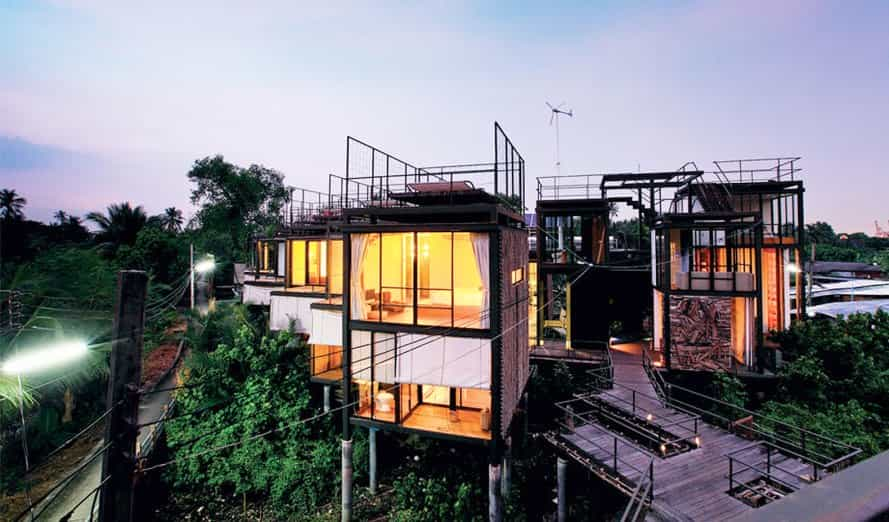
Located a few miles from the bustling streets of central Bangkok, this eco-friendly resort pushes the limits of sustainable passive design. Its sustainability features are endless, including LED lighting powered by solar and wind energy, solar cookers, rainwater harvesting, floors, as well as walls and ceilings built from reclaimed wood and bamboo and insulated with discarded juice cartons. The hotel and restaurant complex named The Bangkok Tree House, was conceived by 36-year-old Jirayu (Joey) Tulyanond, who wanted to see how far can one go to create a comfortable retreat relying on sustainable design. It turns out, pretty darn far – hit the jump for a closer look.
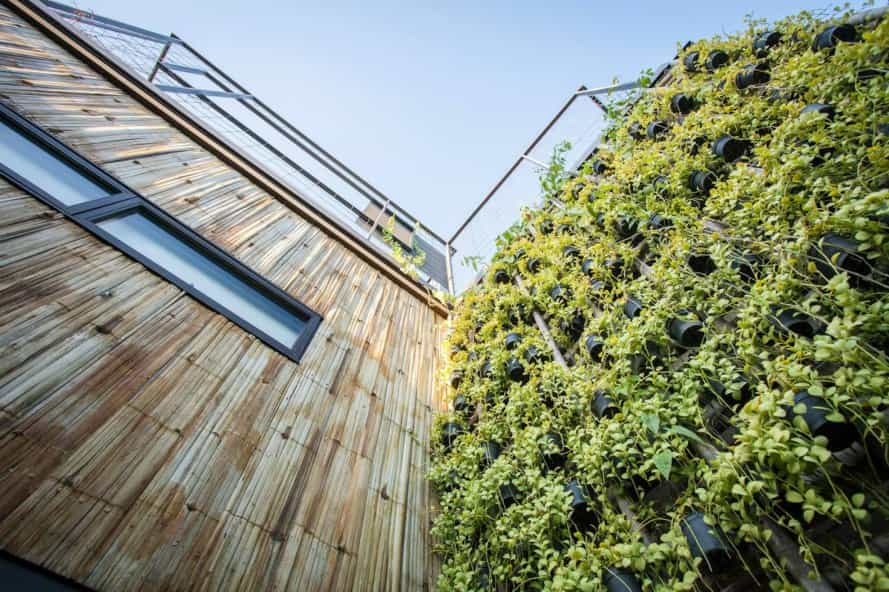
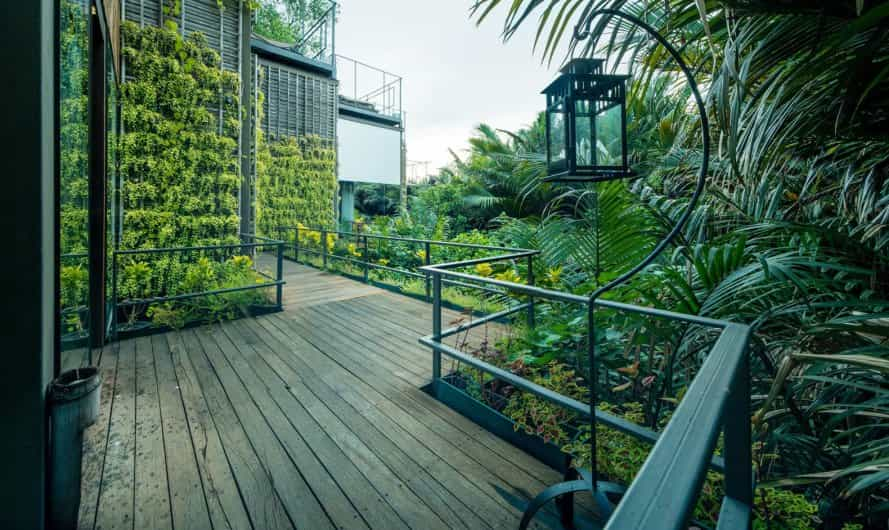
The complex sits on the banks of the Chao Phraya River, just beyond Bangkok‘s city limit. It is an eco-masterpiece conceived by the son of a Bangkok hotelier. The 12-room boutique hotel might not be the best environment for families with toddlers or the elderly with disabilities, since the complex has numerous stairs and semi-levels. Those who don’t mind having an occasional run in with a bug are welcome, and the hotel management has introduced a special discount for those who arrive on bikes, along with the use of a bike repair workshop.
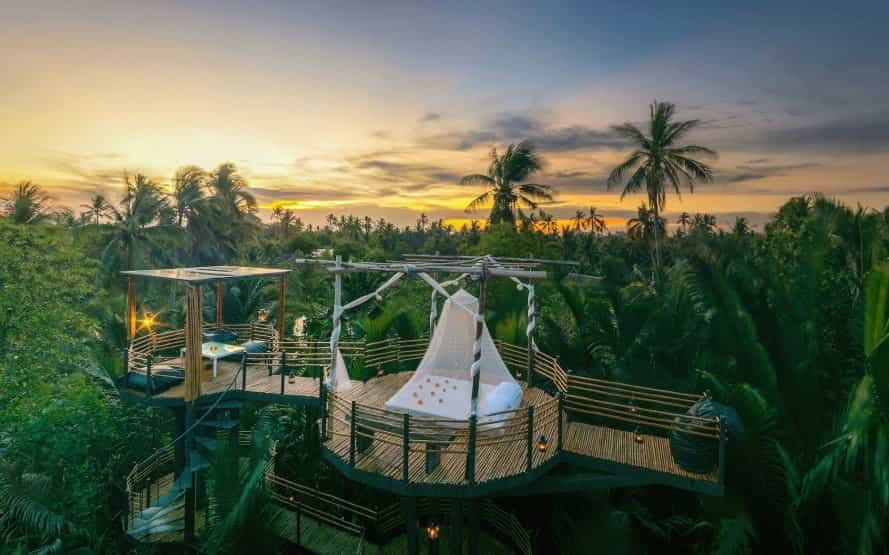
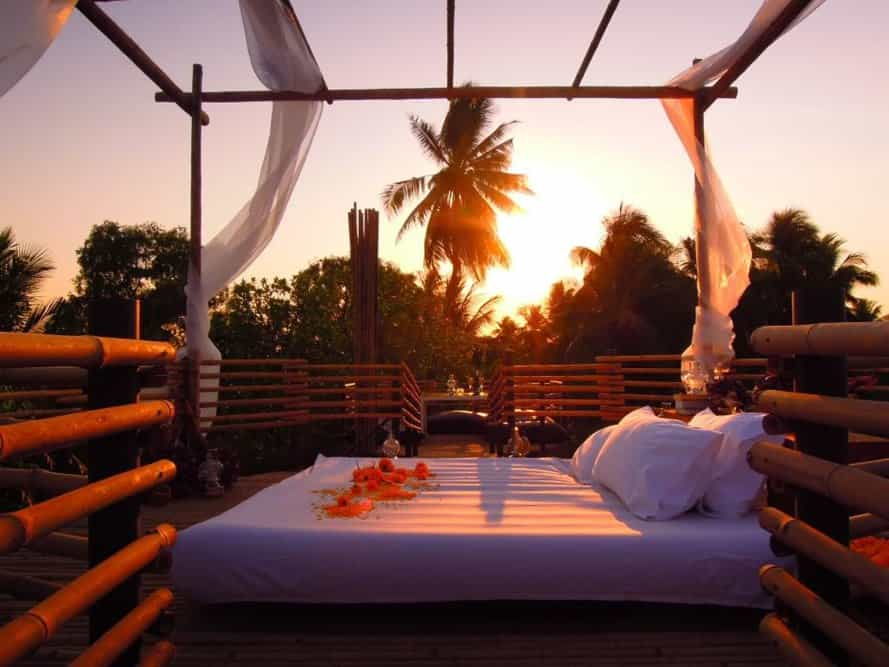
Despite the rustic feel of the space, the hotel does offer all the tech-friendly amenities-computers, free wireless access and other common appliances. The LED-lit rooms are named after and decorated with different types of insects, which is meant to reflect the owner’s deep appreciation for nature. The hotel’s dedication to supporting eco-friendly causes is demonstrated by the fact that The Tree House has pledged to remove a kilo of trash from the Chao Phraya River for each of its bookings.
